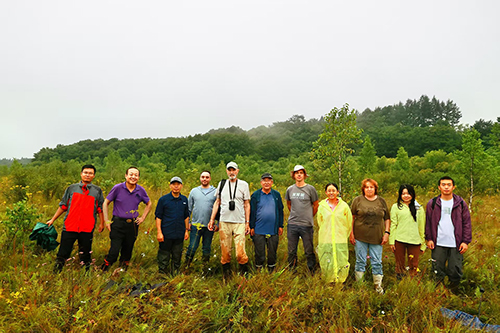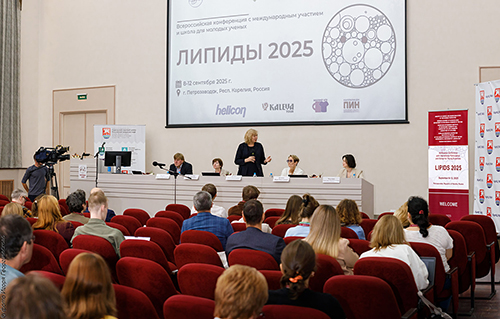Some 15 letters in Karelian from seven respondents were received by the Institute of Linguistics, Literature and History (ILLH) KarRC RAS during the “Hengen vägi muaman kieles” Marathon. Scientists have at their disposal manuscripts from Kalevala, Pryazha, Kostomuksha, Olonets District and Tver Region, kindly provided by relatives and fellow countrymen of frontline soldiers. During the war, they were long-awaited messages from their loved ones, and nowadays they are valuable historical artifacts and pieces of Karelian written language heritage.
The idea to look out for such epistolary heritage occurred to scientists implementing the project “Ordinary man in a great war” in the Kalevala District, when they found letters in Karelian written by a soldier in a family archive.
– Letters from the frontines are invaluable sources for the study of microhistory, the history of the everyday, the history of mentality, and historical psychology. At the same time, letters from the frontlines are part of the epistolary heritage. The authors of the letters used their native tongue to communicate something particularly important and intimate. This could be letters to the mother, sister, wife, fiancée, written in the language spoken in the family, - said Svetlana Yalovitsyna, the campaign initiator, Head of the History Section of ILLH KarRC RAS.
Historians suspected that while writing in Karelian, soldiers could tell things that military censorship would not approve of, such as the hardships of frontline life, hunger and lack of supplies.
- We do see such facts, but based on the letters we have, it cannot be called a mass occurrence or a pattern. Nor can we tell how much the military censorship let such letters go through on the whole. One may assume that because Finland was on the other side of the conflict, writing in Karelian, especially in Latin script, was inadvisable, as the letters could fall into the hands of the enemy and the information therein could be used for ill purposes. This may be the reason that not so many letters in minority languages have been preserved, and our marathon confirms this, - noted the historian.
On the other hand, as Svetlana Yalovitsyna says, there might be no speaker of Karelian (Finnish, Vepsian) among the censors, and so the letters likely did not reach their addressees. Mail could have also been censored locally. In this case, it would go through if the text was clear enough and there was nothing wrong with it.
The content of the letters from soldiers was, on the one hand, very patriotic-minded: they wrote that they were going to defend their native land, and on the other hand, it was cordial and soulful, showing concern for their relatives, their parents. For example, junior sergeant Andrey Dolgoev, a native of Village Lambiselga, wrote in Livvi Karelian to his mother Akulina Nikolaevna: ”Mother, put on a warm chemise every day so you don’t get cold“. And this was for good reason, as Karelian was the language of communication in the family. Sometimes senior relatives could not even speak Russian.
During the Great Patriotic War, as reported by the Military Post Office, a total of 70 million letters were delivered to the front every month, and the same amount was sent back. Those few of them that were written in Karelian, passed through censorship, were preserved in family archives and handed over as copies to ILLH are a true treasure. For scientists, they are not just important historical artifacts, but also pieces of wriiten language heritage. The campaign was supported by colleagues from the Linguistics Section of ILLH KarRC RAS.
– From the language perspective, the letters we received fall into two large groups that follow the geographical pattern: people from the north of Karelia wrote in Karelian in Latin characters or even in Finnish interspersed with Karelian words or grammatical forms, while those from southern parts of Karelia and the Tver Region used Cyrillic script. This reflects the pre-written language tradition and language policy twists and turns of the 1930s, - explained Svetlana Nagurnaya, Head of the Linguistics Section of ILLH KarRC RAS.
Scientists also say that the above-mentioned letters in Finnish with Karelian inclusions are evidence that there existed such a form as the Karelian-Finnish language in the history of the language.
So, over time, letters from and to the frontlines have acquired extra scientific - historical and linguistic - value. Scientists are now analyzing the collected documents, and the results of the study will be published in an academic article. There are also plans to make the rare manuscripts available to a wide audience on a special web resource.
Unfortunately, not a single frontline letter in Vepsian has yet been found. However, there is still time to the end of the campaign - the marathon will last till April 15.
In the photo: Stepan Ivanovich Mulliev (Mulyev), born 1906, went missing in August 1941, and a fragment of his letter from the frontline. Handed in by his granddaughter Lyudmila Kuttueva (Mullieva) from Village Aleksala, Olonets District, Republic of Karelia
News

April 9, 2025
Marathon of Letters from the Frontlines written in Karelian and Vepsian continues
The Institute of Linguistics, Literature and History KarRC RAS continues collecting letters from/to the frontlines written in Karelian and Vepsian, stored in family archives, within the Marathon “Hengen vägi muaman kieles” - “Fortitude in the Native Tongue”. The campaign is dedicated to the 80th anniversary of the Victory in the Great Patriotic War, the Year of the Defender of the Fatherland and the International Decade of Indigenous Languages. Contributors are welcome to share their archival letters until April 15.
The Institute of Linguistics, Literature and History KarRC RAS continues collecting letters from/to the frontlines written in Karelian and Vepsian, stored in family archives, within the Marathon “Hengen vägi muaman kieles” - “Fortitude in the Native Tongue”. The campaign is dedicated to the 80th anniversary of the Victory in the Great Patriotic War, the Year of the Defender of the Fatherland and the International Decade of Indigenous Languages. Contributors are welcome to share their archival letters until April 15.
See also:

September 9, 2025
Aapa mires – a potential joint research interest for scientists from Karelia, Khabarovsk, China
Head of the Mire Ecosystems Laboratory at the Institute of Biology KarRC RAS Stanislav Kutenkov took part in the International Symposium on Conservation and Sustainable Development of Peatland Resources in the Chinese city of Changchun. The laboratory implements studies far beyond Karelia, including the Russian Far East, so there is potential for collaboration with Chinese scientists on comparative mire studies.
Head of the Mire Ecosystems Laboratory at the Institute of Biology KarRC RAS Stanislav Kutenkov took part in the International Symposium on Conservation and Sustainable Development of Peatland Resources in the Chinese city of Changchun. The laboratory implements studies far beyond Karelia, including the Russian Far East, so there is potential for collaboration with Chinese scientists on comparative mire studies.




